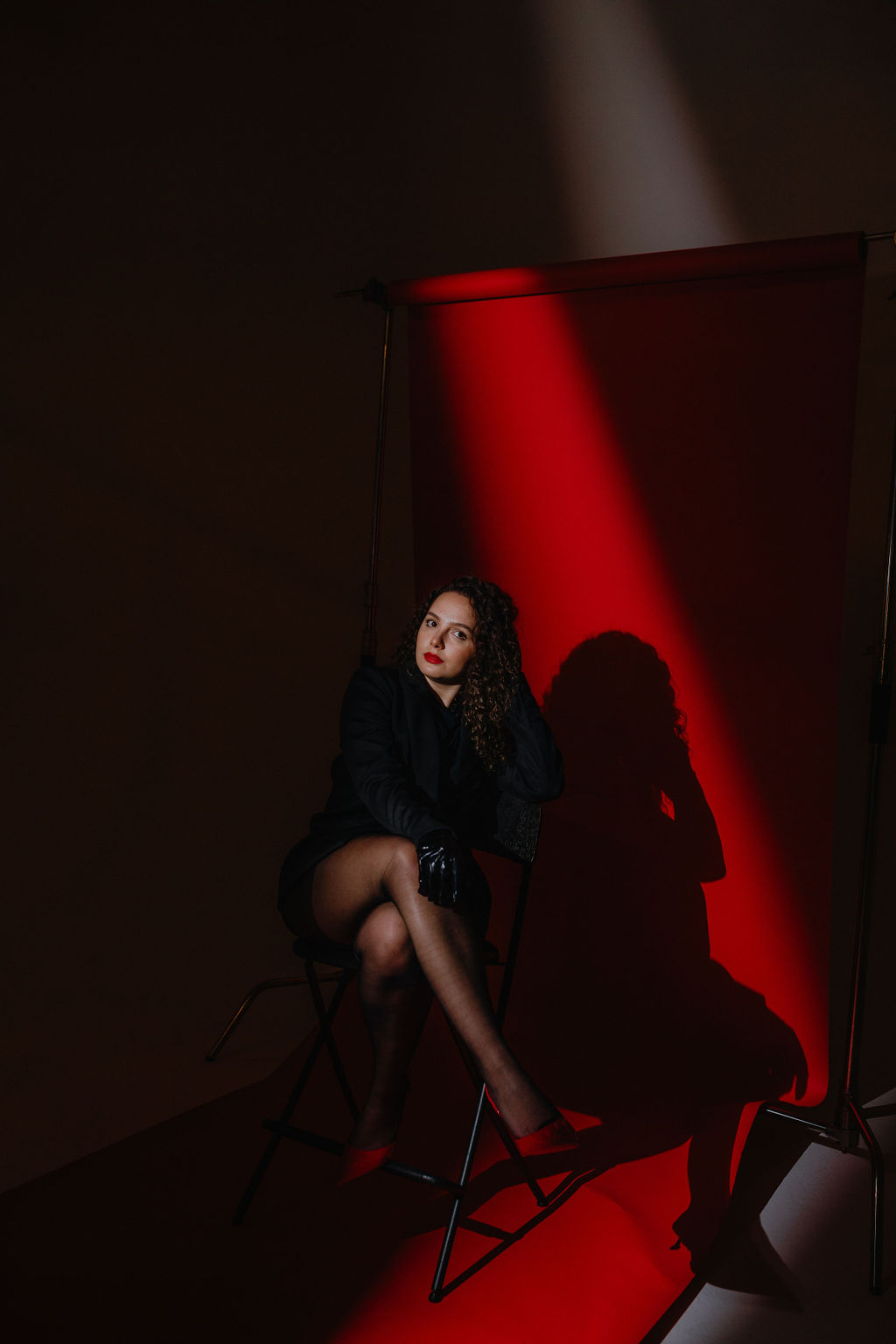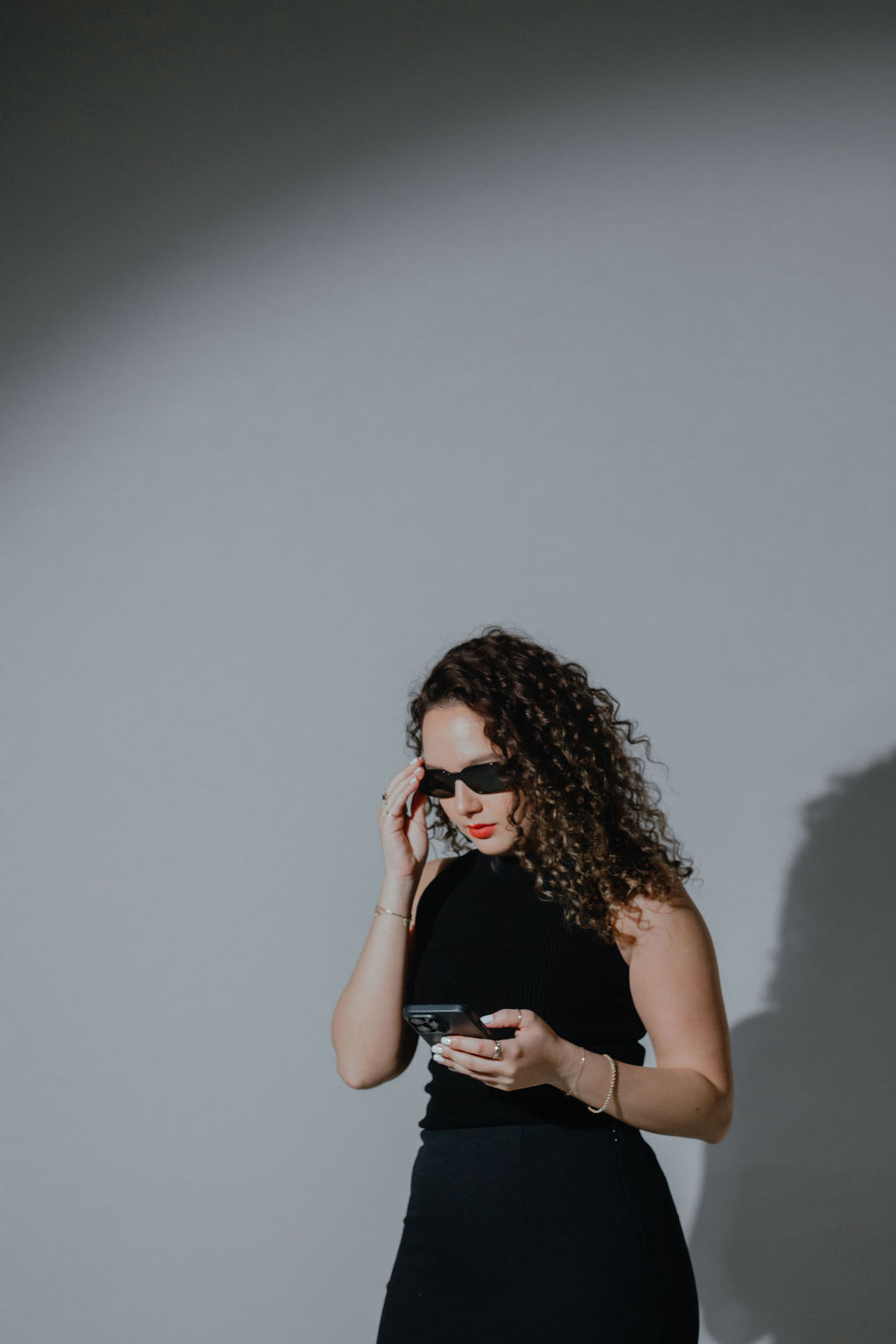
Have you been thinking about starting a separate Instagram account alongside your business account? Let’s talk about the pros and cons! How do you know when it’s time to create that separate account? And what are the red flags that it’s actually just going to add more work to your plate?
In honor of Highflier Powerhouse’s brand birthday, Jasmine’s talking all about her decision to create a separate Instagram account. Tune in to hear how her rebrand experience influenced this decision!
A Creative's Guide
A blog written by creative director Jasmine Haitalani where she shares how she approaches each part of brand building in her business and for industry leading clients. Indulge in each post and get inspired to take action that allow you to set the standard, improve your brand and make revenue.
TRENDING TRENDING TRENDING
featured
When Is It Time To Create Multiple Instagram Accounts For Your Brand?
August 1, 2024
In honor of our Brand Birthday on July 30th, I started a separate Instagram account. Highflier Powerhouse’s Instagram will still be up and running, business as usual. But now, I’ve got a new place to express my personal brand in a new way. There was a lot of decision making, strategy and intentionality behind this process.
So today, I’ll be diving into what allowed me to come to this decision and answering questions like “when is it time to create multiple accounts for your brand? Why you should do it? Why shouldn’t you do it?” In order to understand the framework behind my decision, go listen to episode 110, where I go into the specifics of the Personal Brand Pyramid. The decision to have multiple accounts is personal to you and your goals. For me, I originally started a separate account and set strong boundaries in place for security reasons. Building my personal brand was never about revealing all the fine details of my life to strangers on the internet.
Building an Online Business on Instagram with Privacy as a Top Priority
First, I want to rewind to the beginning of Highflier Powerhouse and the “why” behind some decisions I made when I was first starting the brand. Essentially, we could build a presence, organically convert people and market with privacy at the forefront. People were able to feel like they knew me without actually knowing basic biographical facts about my life, and that was very intentional.
People think that in order for them to have personal accounts or for them to be successful in their personal brand accounts, that they need to be sharing private information. They need to be sharing a lot of the things on the relatability side of the brand pyramid.
Originally, I had a personal Instagram account, just like everyone else did. And I transitioned that into a business account. It was very cringy. I was very nervous. I even had people from my childhood, people from college asking me questions like “is this what you’re doing now?” Someone in one of my pre-med classes asked about it and I actually took it as the moment to say “yes, this is what I’m doing now.”
Six months later, my personal Instagram became private and absolutely no one from business is on that account. It has very few followers, all composed of intimate people in my life that I know. It’s really just there to keep up with people I know. I barely post on that account. But this change allowed me to set a line in the sand and decide that my business account was going to be dedicated specifically to business and nothing else.
I remember looking around and feeling like you knew everything about the business owners behind every business account. It seemed like a prerequisite to share intimate, personal things about your life. You knew about their relationships, their family members, where they were living, their kids, things were very open.
I didn’t want that for a few reasons. I had privacy on mind because I had some serious safety concerns. And those security concerns are still around – that’s why there are certain details about me and my life that will never be shared on a public account. But beyond that, I also had a feeling that sharing certain aspects of my life would just be irrelevant.
Why would someone need to know where I lived in order to buy from me? And why do I need to monetize certain areas of my private life that don’t feel relevant to my buyer, to the expertise, to my offer? And I challenge you to ask these questions too the next time someone tries to tell you it’s important to over share.
Relatable Brands Don’t Create Conversions
Sure, it’s relatable to share certain details. But that’s also when I started having the belief that relatable brands don’t create conversions. Relatable brands create fans. They create viewers. And I did not have the time to wait for a viewer to convert. Plenty of people have thousands of viewers and zero buyers.
This goes back into the personal brand pyramid. I really wanted to focus on building my reputation and having relevancy. I wanted to make sure that whatever content I produced, my audience felt like it was relevant to them, to their needs, to their business and that relatability factor.
Sure, I would share personal things here and there, but nothing that would overtake my content. So for me, it was important to create a brand where people cared more about, again, that relevancy piece than the relatability piece. But I still wanted people to have a connection with our brand. I still wanted people to feel like they could trust us.
The person you’re investing in doesn’t have to be your best friend in order for you to get great results. And there’s a difference between investing in someone simply because they’re your best friend and investing in them because of their expertise.
So I focused on my expertise and thought leadership. I made bold claims and stood by all of my opinions. Eventually, this attracted other people that didn’t want to create a brand that attracted a lot of viewers, but no buyers. They also wanted to create a brand where they could be honest and have this very well presenting brand persona and not feel like they are presenting themselves as this fake identity.
Creating Connection Without Basic Fact Check Information
People feel like they know somebody when they feel like they can predict little things about your disposition and taste. Can someone anticipate what I would do during my free time? Can someone anticipate what kind of TikTok I would find funny? What kind of meme I would find funny? What brands that I would like or not like, what are trends I would jump on or not jump on? What music do I listen to?
These factors go much further, much faster than the basic biographical information like where you live, what your kids’ names are, etc. Things like mannerisms, reactions, opinions, go a long way in establishing a connection with your audience. And you don’t have to share anything you’re uncomfortable with sharing to establish this report!
A couple of days ago, I reposted this meme on stories and it was Lizzie McGuire and her best friend Miranda and they were on the phone and it was talking about how yapping with friends improves mental health and I got more responses around how people love that show, how this makes sense for them and a lot of relatability factors.
Am I posting stuff like that every single day? No, it’s not always relevant to the business. But that gets somebody to assume that they know you because they know about something you like.
And today I’m at a point where I feel like my personal life matches that business persona. And now that we’re at equilibrium, I decided to create my own separate account. I started creating a connection with my audience by tapping into the business’s personality. So my goal at the time and what I’ve done successfully is figure out how I can get people to connect with the business brand as if it were a person.
I think so many people equate themselves to being the business because they’re the ones running it. They’re the CEO. But you have to start treating your brand like a product of it’s own. Yes, I’m the one creating the content but at the end of the day the brand is not me.
I would never run a business that’s based on values that I don’t respect. And I think that’s the authentic piece. However, I got to choose which parts I wanted to bring into the business brand and which parts really were not relevant at all.
The Strategy Behind Running A Separate Account
Number one, I do not believe in having separate accounts and trying to create two separate strategies unless you’ve got solid foundations under you. If your current account does not perform well in terms of organic marketing, it’s not time to add another one to the mix.
If you don’t know how to get leads through your primary account, get conversions there, build connections there – trying to create a separate account will not fix that. I don’t care if it’s a podcast account, a private account, a program account, a speaker account – this will only add more stress to your brand and business.
It’s actually just going to give you two new problems that you now have to solve. Often, people will just end up double posting the same thing to both accounts or they’ll leave one to dry.
The catalyst for this decision to create a separate account was actually my most recent rebrand. When we rebranded a couple of months ago, I realized that there were very specific ways that I wanted to portray the agency. Yes, I obviously am still the CEO, the creative director. I’m the face of the brand and all of that. But I realized I wanted to stop putting my private life on an agency account page.
Going the agency route, it just makes more sense for Highflier Powerhouse’s Instagram page to be business focused. I might involve members of my team and my content leader in strategic content on that page. But the lifestyle content, vlog style Saturdays is not necessarily achieving a goal for the agency at large. So it’s time to break things up!
But of course the question of “what do I want to accomplish as an individual, separate from the agency?” is always in the back of my mind. What would it look like if I were to start pursuing corporate contracts or corporate consultations where someone can hire me as an individual for strategy or for brand management?
Because I’m trying to pursue a different path for my own personal career outside of the agency, this is what I’ve decided to do. And I was like, in order for me to do that, I want to have a separate strategy for my personal account. I want to be producing different things on my personal account. But they key here is a distinct goal that’s not mean to be integrated into the brand of the agency.
So here’s the thing – if you have personal goals that are separate from your business- go ahead and create a separate account. But if your goals for this separate account are inextricably linked to your business, there is no reason to add extra stress to your life by creating a thousand different Instagram accounts.
THE LATEST
THE
MARKETING EDIT
Get edits you can make to your brand marketing to increase your revenue delivered straight to your inbox.
JOIN OUR EMAIL SERIES
Learn how to create an extra $100k with your Rebrand by becoming the only option, just like our clients.
Get access to our free training where you'll learn how to make an extra $100,000 in revenue after you rebrand your business as a coach or service provider.
GET THE TRAINING
COPYRIGHT HIGHFLIER POWERHOUSE 2026 | TERMS AND CONDITIONS | PRIVACY POLICY
COPYRIGHT HIGHFLIER POWERHOUSE 2024 TERMS AND CONDITIONS | PRIVACY POLICY
Navigation
Learn
Connect
Highflier Powerhouse is an immigrant-founded agency based in the United States that offers marketing and creative services to service-based entrepreneurs across the globe.
a creative's guide
BRAND YOUR WAY TO A MILLION
THE SALES STUDIO
THE INDUSTRY'S CHOICE
THE MARKETING EDIT
[THE PODCAST]
[THE blog]
[THE email list]
[DFY RETAINER]
[DFY PROJECT]
HOME
CLIENT CATALOG
ABOUT US
BROWSE //
WORK WITH US //
AND MORE //
HOME
CLIENT CATALOG
ABOUT US
BROWSE //
WORK WITH US //
AND MORE //
RESOURCES
OUR OFFERS
BECOME THE CELEBRITY OF YOUR NICHE
[PRIVATE PODCAST]
a creative's guide
BRAND YOUR WAY TO A MILLION
THE MARKETING EDIT
[THE PODCAST]
[THE blog]
[THE email list]
GO BACK
BECOME THE #1 BRAND IN YOUR NICHE
[the PRIVATE PODCAST]
Paragraph
Paragraph

